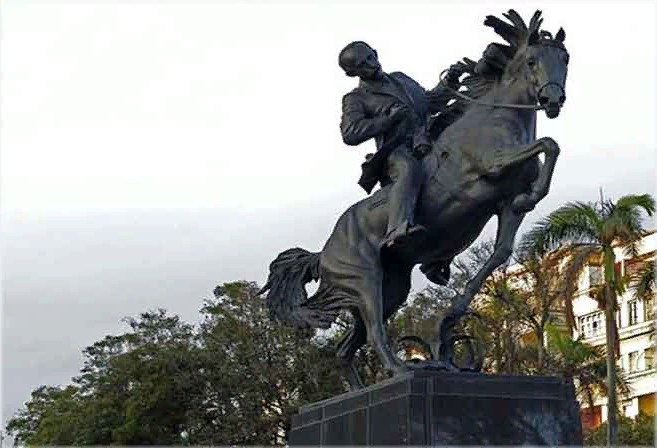Cuba commemorates today the 128th anniversary of the death of its National Hero, José Martí, in a surprising and unequal combat against the Spanish colonial forces in Dos Ríos.
The leader of the national deed for emancipation from Spain was struck by three shots during the confrontation waged on May 19, 1895 against more than 600 Iberian soldiers who, commanded by Colonel José Ximénez de Sandoval, ambushed the insurgents in their camp in Dos Ríos, in eastern Cuba.
Despite the anticipated concern of the General in Chief of the Mambi troops, Máximo Gómez, for the safety of the Delegate of the Cuban Revolutionary Party, Martí decided to take up his weapon and place himself practically at the forefront of the hostilities, with which he was at the mercy of the enemy fire.
Various investigations corroborate that a bullet entered his chest and fractured his sternum; another entered through the neck and, on its way out, destroyed the left side of his upper lip, while the third hit him in the thigh.
The Generalissimo, Máximo Gómez, did not manage to recover the lifeless body of Martí. The Spaniards seized him and protected him with a strong barrage of fire, certain that they had killed an important leader of the insurrectionary movement, at that time its organizing brain.
Some time later, Gómez evoked before the troops the battle of Dos Ríos, the compromised situation, the unexpected news of the disappearance of Martí, the uncertainty about his death, and the impossibility of rescue.
Martí had disembarked on April 11, 1895 at Playitas de Cajobabo in the current province of Guantánamo. He came from exile in the United States to lead the destinies of the nation in what he described as a “Necessary War” for independence from Spanish colonialism.
The tragic event meant a hard blow to the political leadership of the independence struggle, but it also revealed the intrepid character of the man of universal thought-poet, essayist, journalist-for whom: “Death is not true when the work has been done well of the life”.


